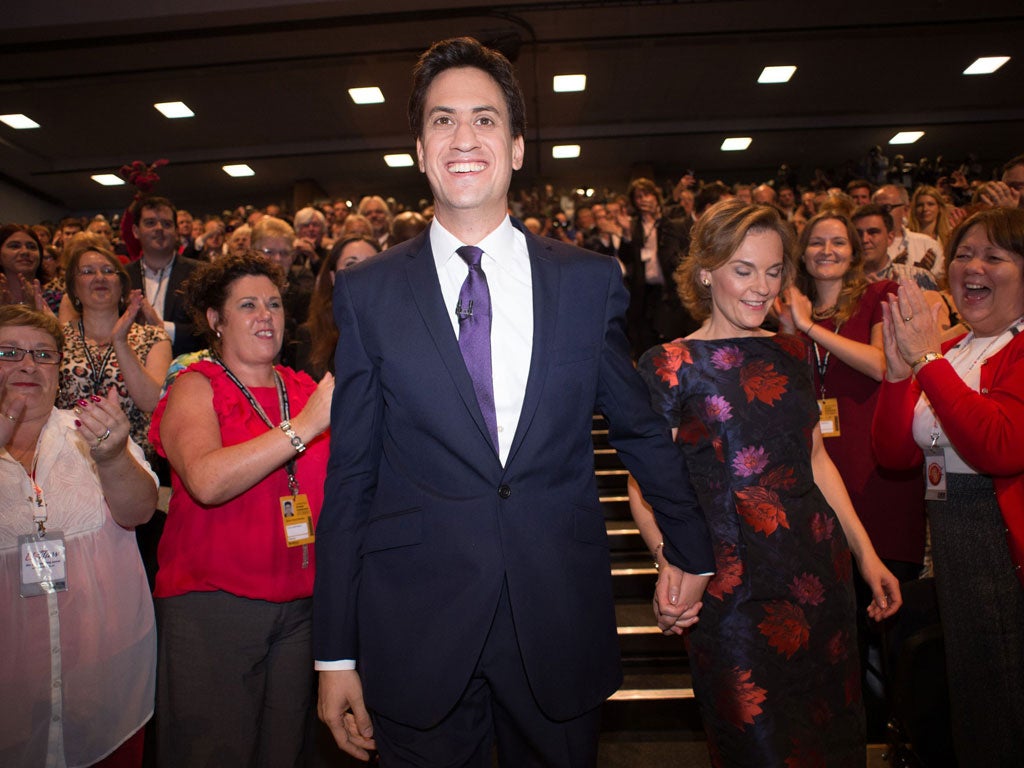2013 - the year in review: The battle for the 2015 election started two years early
This year's big political changes will shape the next eighteen months

Three events in 2013 were of overwhelming importance, simultaneously clarifying and transforming the political landscape. As a consequence of these three sagas the personalities and themes of the next election are now in place.
The first pivotal event was the by-election in Eastleigh, a constituency targeted by the Conservatives in the south of England. The Liberal Democrats retained the seat, the first formidable performance by the party in a national by-election since 2010 and one that ran counter to their abysmal national opinion poll ratings. Within a nanosecond of the declaration in Eastleigh, internal whisperings against Nick Clegg’s leadership were silenced. If his party had lost the seat his position would have been under constant destabilising critical scrutiny. Instead, the by-election victory made him the most secure leader of the three main parties, as the fickle critical focus turned to either David Cameron or Ed Miliband. Clegg used the space to move his party further to the right in relation to economic policy, and his party seemed willing to go along with him until the next election. The Lib Dems’ party conference in September was the sequel to Eastleigh. Clegg was in complete command of the troops. Indeed, the mood at the annual gathering was celebratory, as if they were ahead in the polls. In reality their national poll ratings remained dire; but Eastleigh showed that in certain constituencies they have the resources and energy to keep some support.
In the build-up to the conference season, it was Miliband who was under pressure. The dead month of August was filled with stories and columns about Labour being in crisis. The frenzy fed on itself. Miliband secured his position and re-framed the debate on the economy in a single speech at the conference. This was the second big event of the year. Miliband proposed a populist, accessible policy to make a wider argument, similar to Margaret Thatcher’s sale of council house sales in 1979. His price freeze on energy bills was accompanied by an argument about the need to intervene in failing markets. Miliband thus moved the debate a few millimetres to the left, and his ideas dominated the agenda for the rest of the year. As the economy started to grow, the focus shifted to living standards and markets that failed to deliver for consumers. It is highly unusual for an opposition leader to shape policy debates in this way. Neither Tony Blair nor Margaret Thatcher managed to do so.
The response of Cameron and George Osborne was muddled. They dismissed Miliband as a Marxist while running around in a panic to find ways of intervening in failing markets themselves. Yet they themselves more clearly defined in 2013. Osborne’s autumn statement was the third most significant event of the year. His plans for cuts in public spending, until at least 2019, marked him out as a Thatcherite of conviction. He set traps for Labour, but there was belief behind the game playing. Cameron outlined the nature of the belief in his speech at the annual Lord Mayor’s banquet shortly before the Autumn Statement. The address was his clearest yet in favour of a much smaller state, not just as a response to the economic crisis but as an ideological objective.
The duo made their assertions about cuts and the state as a matter of conviction, but of course every word was partly tactical, because 2013 was also the year in which the Tory electoral mountain got even higher. UKIP performed stunningly well in May’s local elections so Cameron faced a party to his right and, after Eastleigh, perhaps a Lib Dem consolidation in the south of England. On the whole Cameron responded to the challenge by being more openly right wing. But he also clung to the historic legislation in favour of gay marriage like a protective shield: one policy that had echoes with his early pitch as a Tory moderniser.
By the end of the year all three party leaders were secure: each will fight the next election. The polls remained largely unchanged, and the coalition was as solid at the end of the year as it was at the beginning. Economic growth helped to bind it, even if it did not boost its position in the opinion polls. The two leaderships regarded economic growth as vindication of the coalition, a unity between competing parties that had saved the economy. Polls suggested that most voters did not feel saved.
Subscribe to Independent Premium to bookmark this article
Want to bookmark your favourite articles and stories to read or reference later? Start your Independent Premium subscription today.

Join our commenting forum
Join thought-provoking conversations, follow other Independent readers and see their replies